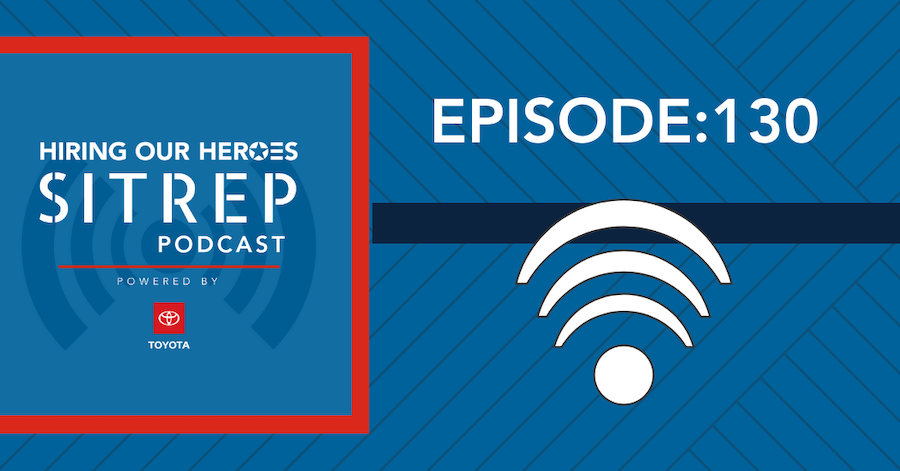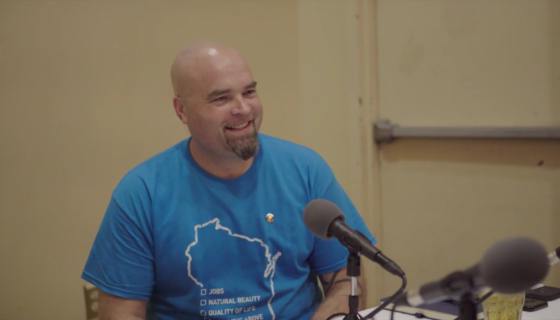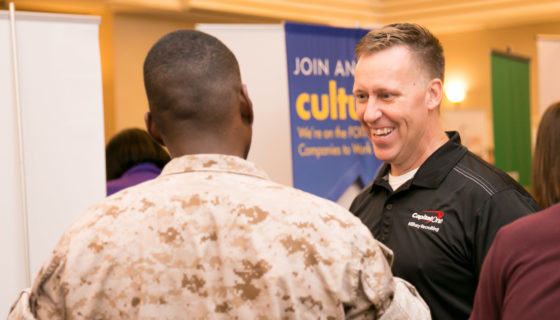Volunteering Is Good for Your Mental Health

Volunteering isn’t just good for those you’re helping. It can be a great tool for increasing your own state of mental wellness.
In episode 130 of the Sitrep podcast, Andrea Hutchins, Senior Manager of Marketing and Communications at Hiring Our Heroes, interviews Army Major (Ret.) Frances Roberts.
Roberts was recognized as a 2015 White House Champion of Change for her work as the CADCA VetCorps Prevention Coordinator with the Jefferson Parish Alliance of Concerned Citizens Coalition. In that role, Roberts worked closely with the Louisiana Army National Guard to raise awareness on the unique challenges faced by military members such as Post-Traumatic Stress Disorder, Traumatic Brain Injury, reintegration, unemployment, domestic violence, drug and alcohol abuse, and issues concerning military children and families. She also supported efforts to end veteran homelessness in the New Orleans metro area.
Listen in as Roberts talks about why she volunteers with Hiring Our Heroes and why we shouldn’t ignore the signs of mental illness.
Top Takeaways from “Volunteering Is Good for Your Mental Health”
1. Frankie has volunteered at five HOH Sport Expos.
“I like this volunteer stuff. It keeps me busy. It gets me back in the public eye and I can network myself. I didn’t know that I had an ability to connect people until after I started volunteering. Connecting people with resources has become a natural thing for me.” – Army Major (Ret.) Frances Roberts
2. The National Guard has a higher suicide rate than other branches of the military, including active-duty soldiers.
“For some reason it’s hard for them (National Guardsmen and Reservists) to find employment back in their home states.” – Army Major (Ret.) Frances Roberts
3. Everyone is at risk of mental illness and we shouldn’t ignore warning signs of PTSD, anger management issues, depression, and anxiety.
“I’ll be the first to tell you that when you know that you could have an issue, don’t ignore it. If you start addressing it early, I think it sets you up for success over the span of your lifetime.” – Army Major (Ret.) Frances Roberts
4. Professional counseling or group therapy is vital for anyone facing situations of transition, grief, or mental illness.
“The thing with mental illness is that you want to start isolating yourself. That’s the very thing that you shouldn’t do because once you get into that particular situation of isolation you start feeling like there’s no hope or that no one cares and that is not the case.” – Army Major (Ret.) Frances Roberts
5. Service members aren’t the only ones that face transitions. Quick and unexpected transitions, which Frankie calls “suddenlys,” can happen at any time, but have hope that things will be OK.
“There are people out there that want to see you succeed regardless of where you are in your transition or your ‘suddenlys.’ We really do all need each other and we have to have each other’s backs.” – Army Major (Ret.) Frances Roberts



